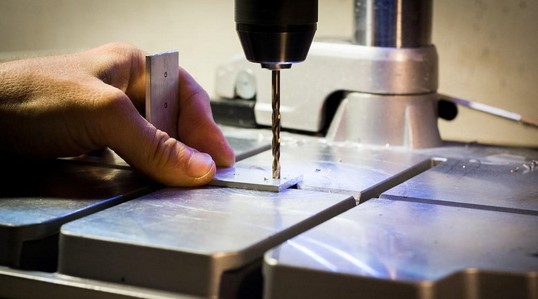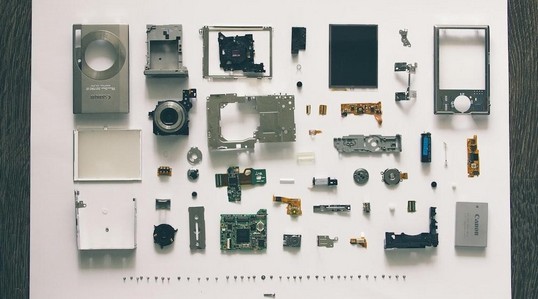Introduction
Every year, the United Arab Emirates uses millions of tons of non-renewable resources called minerals for construction, manufacturing, energy development, and several other industrial processes. However, studies show that the rising demand for essential minerals is resulting in excessive mining of virgin raw materials and utilization of other essential resources like water, land, and energy.
Therefore, there’s a growing need for solutions to reduce the depletion of limited resources and extend their life cycles. This is where minerals recycling comes in to reduce some of the demand and the negative impacts on production and economic growth.
Unfortunately, many UAE residents and businesses don’t know which minerals can be recycled or reused. Therefore, in this post, we’ll walk readers through the importance of mineral recycling and share five recyclable minerals with huge demand.
Importance of Mineral Recycling

Minerals recycling is collecting, separating, and repurposing valuable materials from waste products and components after they’ve reached the end of their useful life. The core purpose of recycling minerals is to reduce the demand for new material in the age of globalization, which is leading to rapid resource depletion.
Mineral recycling also reduces the volume of minerals ending up in landfills where they’re wasted. The process ensures these important resources are salvaged and reused for the same or other purposes, depending on the circumstances.
For instance, aluminum cans used to hold beverages in their initial lifecycle can be recycled into car parts, building materials, cooking utensils, and hundreds of other products. With the rapid rise in industrialization, mineral recycling is becoming more important to guarantee a reliable supply of materials to every industry depending on them.
5 Recyclable Minerals You Should Know About

Now that you’re aware of the importance of minerals recycling, you’re probably wondering which minerals can be recycled or reused:
1. Iron
Iron is a staple material used in almost every industry in the 11 GICS sectors in UAE. Around 98% of iron ore mined worldwide is used for steel production. However, virgin and recycled iron have several other applications that make it essential for the circular economy, including construction tools, rails, vehicles, iron oxides for industrial processes, and circuit boards, to name a few.
Iron recycling is typically done by extracting the metal from waste products like construction material or electronics by melting them in a furnace between 1,500°C and 2,000°C at a mill. The process is much cheaper than mining and extracting iron from scratch since it requires fewer resources, labor, energy, and time.
2. Copper
Copper is the world’s most common native metal (a mineral available naturally in metal form). It’s also one of the oldest and most important minerals in history since it’s among the first metals to be turned into alloys (bronze and brass). Copper has an extensive range of applications in several industries.
However, it is most commonly used in wires and cables for electronic devices. Other applications include cooking utensils, heat exchangers, food processing, industrial chemicals, and architecture. Due to its high demand, copper is the third-most recycled metal worldwide after aluminum and iron.
While this might sound positive, the global demand for copper has exceeded 25 million tons per year, according to Statista. Currently, only 8.7 million tons of copper are recycled, which is roughly 34%. Therefore, there’s still a significant strain on the copper mining industry.
Fortunately, more countries, including the UAE, are cooperating with several veterans and emerging players to improve their copper recycling capacity and capabilities. Popular examples include PGI Group, Yes Full Circle, and Lucky Group.
As far as the recycling process is concerned, it’s essentially the same as the extraction process with fewer steps. Copper scrap is melted in a furnace to remove the impurities and then cast into ingots and billets.
3. Aluminum
Aluminum is one of the most common minerals used in households, offices, and industries due to its vast abundance worldwide. It’s incredibly lightweight, corrosion-resistant, malleable, and strong. Therefore, it’s used in hundreds of applications, including packaging (aluminum foil), construction (sheets, rods, etc.), electrical devices (boards, casing, etc.), machinery, household products (furniture, utensils, etc.), and computers, to name a few.
Regarding recycling, aluminum tops the list in terms of ease of recycling because the process requires less than 5% of the energy used to extract and produce virgin aluminum from its ore. The process simply involves remelting aluminum scrap from different sources to remove any impurities and reshaping it into blocks, sheets, etc.
In the UAE, aluminum scrap comes from several sources. However, aluminum beverage cans are the largest source. Hence, RECAPP offers a free plastic & aluminum recycling service for residents to ensure they don’t end up in landfills.
4. Lithium
Lithium is one of the world’s most important metals, used mainly in producing batteries for vehicles, computers, smartphones, and other electronic devices/machinery. It’s also commonly used in ceramics, glass, lubricants, and medicine production. However, most lithium waste ends up in landfills since less than 5% of batteries and other products are recycled.
From an environmental perspective, this is a concerning statistic as lithium is one of the most toxic metals that can easily leach into the soil and oceans to affect marine and human life. Fortunately, lithium is a recyclable mineral and can be easily moved to a pyrometallurgy facility for smelting and electrolysis.
5. Lead
Finally, the last mineral which can be recycled or reused on our list is lead. Lead and osmium are the densest metals on earth. However, people are more familiar with lead since it’s commonly used in construction, gasoline, batteries, plumbing, radiation protection, ammunition, and weights, to name a few.
However, nearly 85% of all lead extracted through mining is used in batteries for electronic devices. Therefore, batteries are the major source of lead scrap and can be collected by recycling companies for processing. A typical lead recycling process involves remelting the metal and refining it using different chemicals. In terms of economic viability, the process is nearly 50% cheaper than virgin lead production.
Conclusion
RECAPP is among the most popular recycling services in the United Arab Emirates, and is specialized in the recycling of plastic and aluminium. As a leader in the industry, we strive to educate our registered users and readers about the different ways they can reduce their carbon footprint and lead a more sustainable lifestyle.
By learning which minerals can be recycled or reused, you can make better decisions related to disposal. For instance, instead of tossing beverage cans in the trash, you can opt for our door-to-door collection service.
Our team can deploy recycling boxes on your premises for aluminum and ferrous cans and take care of the disposal process at your convenience.
